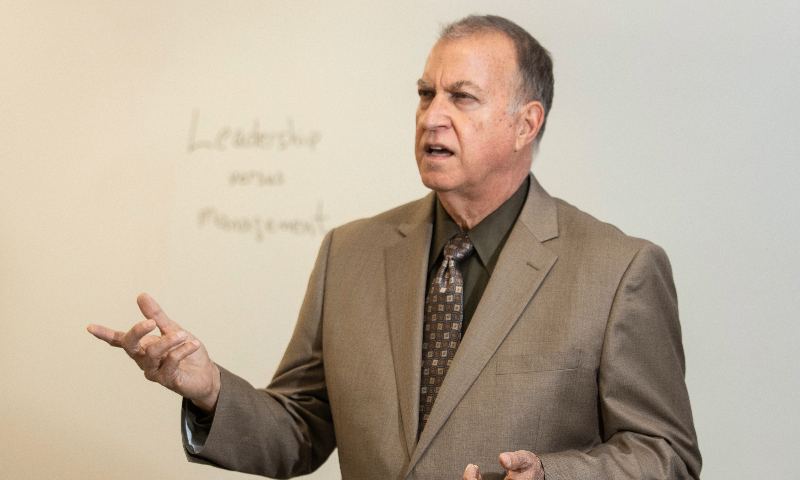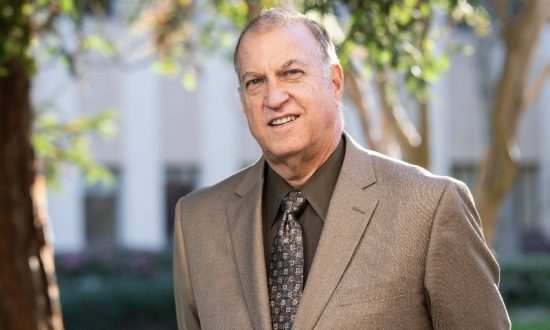Dr. Rick Hefner serves as the Executive Director for Caltech, where he designs and teaches executive and professional education programs for technology-driven individuals and organizations. He has over 40 years of experience in systems engineering, corporate management, and training development and has worked with over 30 companies in the aerospace, communications, electronics, and health sciences industries. Dr. Hefner is credited with over 200 presentations and publications.
Recently, in an exclusive interview with Higher Education Digest, Dr. Hefner shared his career trajectory, current roles and responsibilities as Executive Director at California Institute of Technology, his take on the ways to achieve long-term success, personal role models, future plans, and much more. The following excerpts are taken from the interview.
Dr. Hefner, please tell us about your professional background and areas of interest.
I was trained as a systems engineer and worked for over 35 years in the aerospace and defense industry. During that time, I taught part-time in both corporate and university training programs. Ten years ago, I joined the California Institute of Technology to help lead professional training efforts. I’m a firm believer in being a lifelong learner and am excited about new technologies that are changing the nature of business. Presently, I am fascinated by the advances in artificial technology and their impacts on product development and training design and development.
Brief us about your roles and responsibilities as Executive Director at California Institute of Technology.
I lead the team that designs and delivers Caltech’s professional and executive training programs. In a typical year, we deliver over 60 training programs to over a dozen different companies, as well as over 40 public classes. Day-to-day responsibilities include talking with corporate customers about their needs, developing marketing strategies, assessing course deliveries for effectiveness and improvement opportunities, and working with our vendors and partners to ensure we are creating the type of training experiences Caltech is known for. But my first love is teaching, so I always make time to teach a few courses each year.

In what ways has management education evolved over the years? Where do you see it heading towards in the age of AI?
Management education must keep pace with the changing business environment, which is being driven by dramatic advancements in technology and the demands of the global economy:
- Shift from Theory to Practice: Historically, management education has been theory-driven, focusing on classical management principles and case studies. Today’s programs must emphasize real-world problem-solving to prepare students for the challenges of the business world. It is critical that training be tailored to current industry and corporate challenges.
- Collaborative and Team-Based Learning: The importance of teamwork and collaboration in the workplace has led to a greater focus on collaborative and team-based learning in management education. Today’s students learn how to work effectively in diverse teams during class, mirroring real-world work environments.
- Globalization and Social Responsibility: Programs must address corporate social responsibilities such as fair labor practices, community engagement, sustainability and environmental responsibility, and global supply chains.
- Technology Integration: Technology is rapidly reshaping the way organizations operate. Future business leaders must identify emerging technologies and anticipate their impact on their organizations. As an example, management education is integrating AI-related topics to automate tasks, make predictions, and optimize decision-making. Students also need to develop the skills to manage AI and data-driven projects and consider the ethical implications of AI in business. On the education front, the use of AI-driven tools and simulations for personalized learning and assessment is also becoming more common.
- Lifelong Learning: The rapid pace of technological change and business disruption means that management education is no longer confined to a specific degree or time in one’s career. Lifelong learning and continuous skill development are becoming essential for managers to stay relevant in their roles. Flexible learning strategies such as micro-learnings and certification programs are emphasized over formal, advanced degrees.
What are the keys to building successful teams? Which qualities should the leaders possess to build and lead such teams?
After 40 years in leadership positions, my perspective has really changed. I have come to realize that all critical leadership skills stem from the ability to drive and manage change – at the organizational, project, and personal level.
- At the organizational level, leaders must identify and analyze the external and internal factors that necessitate change, such as market shifts, technological advancements, or evolving customer preferences. They must possess the knowledge, skills, and attitudes required to develop change strategies, communicate effectively with stakeholders, and create a change-ready organizational culture, helping their organizations stay competitive and innovative.
- At the project level, leaders must possess project management skills for effectively planning, executing, and controlling change initiatives. They must understand how to effectively apply methodologies like Agile, Scrum, and Six Sigma, and with a focus on delivering value.
- At a personal level, leaders must foster personal growth and development, both in their teams and within themselves, enabling individuals to become effective change agents. Critical soft skills such as communication, negotiation, conflict resolution, and emotional intelligence are essential for influencing and inspiring others during times of change. By understanding their own leadership styles and tendencies, leaders can tailor their approaches to change management, maximizing their effectiveness as leaders. They must also provide an example of self-awareness and adaptability, to better cope with personal challenges and stress associated with change.
You hold a PhD in Mechanical Engineering from UCLA. What fascinated you about this subject?
I have always been interested in the integration of different disciplines and perspectives. My PhD thesis examined two competing perspectives for the design of complex, flexible spacecraft, and formulated an approach for integrating them in the design process, while maintaining the advantages of both. My continuing research examines similar integrations in other areas, such as the integration of project management and systems engineering.
What are some of the roadblocks that you faced in your career? Do you have some examples to share on overcoming them?
I view career challenges as learning opportunities. Each obstacle I encounter serves as a chance to grow and develop my skills, both professionally and personally. These challenges push me to step outside my comfort zone, encouraging me to acquire new knowledge and perspectives that I might not have gained otherwise. I believe that overcoming adversity builds resilience and strengthens my problem-solving abilities.
One of my biggest challenges was working with a senior manager with a dramatically different set of values than my own. We eventually parted ways, but in the interim I learned how to deal with difficult people and the importance of having a clear sense of personal purpose and direction.

What has been your most career-defining moment that you are proud of?
When the COVID pandemic hit, our management education program at Caltech was based solely on in-person classroom training. That approach was no longer viable, so I helped the organization pivot quickly to remote and on-demand training delivery. I had to rapidly develop new strategies, infrastructures, and business models, and communicate the vision to my instructors and staff. It was a huge amount of change to absorb, but we learned a lot and have emerged with a stronger and more diverse business model.
How do you define success? What is your take on the ways to achieve long-term success?
Success is leading with integrity in a way that sustains my organization’s mission and my personal impact over time. I want my life to make a lasting difference, both in my profession and in the development and growth of my team members. Short-term organizational goals come and go, but the true measure of success is the impact you leave on the people around you. This is best achieved by active mentoring and setting an example in the standards you set for your personal performance.
Who is the one person you look up to and why?
I have had a variety of role models throughout my career. My parents served as early exemplars, leading our family with love, sacrifice, and guidance, teaching the foundational values of responsibility and discipline. My teachers and coaches helped further mold my character, demonstrating the importance of dedication, continuous learning, and teamwork. Numerous managers and peers showcased the importance of mentorship, resilience, and innovation. They provided examples of balancing assertiveness with empathy, making tough decisions while fostering a collaborative environment, and continuously inspiring growth.
Where do you see yourself in the next 5 years?
As I approach the end of my planned career, I am focusing to a greater extent on mentoring. I want to capture my leadership experiences and insights and help train and guide leaders for the next generation.




